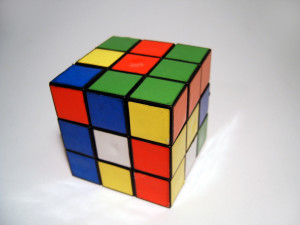 For the most part, I’m a gardener. And proud of it! If you’ve spent any amount of time in the writing community, you probably know what this means: I explore my story as I go along, finding my way to the ending through a process of trial and error rather than moving through the book strictly according to a preordained outline. I don’t eschew outlining entirely; I do keep fairly detailed outlines of the two or three chapters ahead of wherever I happen to be in the story on a given day. Working this way gives me confidence in the story’s immediate future, but beyond that I admit it can get a little murky. I only have a general idea of how I want the story to resolve while I’m in the midst of it (usually it’s a solid, workable idea, but nonetheless I only work out the details very generally).
For the most part, I’m a gardener. And proud of it! If you’ve spent any amount of time in the writing community, you probably know what this means: I explore my story as I go along, finding my way to the ending through a process of trial and error rather than moving through the book strictly according to a preordained outline. I don’t eschew outlining entirely; I do keep fairly detailed outlines of the two or three chapters ahead of wherever I happen to be in the story on a given day. Working this way gives me confidence in the story’s immediate future, but beyond that I admit it can get a little murky. I only have a general idea of how I want the story to resolve while I’m in the midst of it (usually it’s a solid, workable idea, but nonetheless I only work out the details very generally).
This doesn’t mean the endings aren’t well-earned or carefully orchestrated. In fact, I feel that working this way forces me to spend a lot of time considering how satisfying various plot and character developments will be when push comes to shove. If any particular idea isn’t panning out, I don’t have qualms about jettisoning it in favour of an alternate approach. In my experience, this allows my books to get better, stronger, tighter as I work through them, solving them in the same way one might tackle a Rubik’s Cube. (Full disclosure: I’ve never managed to solve a Rubik’s Cube, so I guess that’s a bad example.)
So what does this have to do with character? Everything.
When you don’t have an airtight outline guiding you through the storytelling weeds, you have to create potential in your characters. In the earlier stages of writing a novel, it’s profitable to spin dozens of little threads that may or may not pay off in the long run. You don’t have to tie them all together. Once your story is worked out, you can trim the book down to focus only on the threads that coalesce. At the beginning, though, the key to creating great, story-propelling characters is to pinball them off other characters and events to see what sticks. In my experience, this leads to a host of options which can be exploited down the road.
This can feel messy and unfocussed while in progress, but a lot of the detritus doesn’t make it into the final cut. I end up writing a number of early scenes that don’t see the light of day, because they don’t lead anywhere interesting. But I often won’t know if particular character combinations work until I attempt them. So Margaret clashes with Fred, and Fred makes a pass at Steve, and Steve can speak with the ghost of a long-dead alien consciousness from Europa, and the long-dead alien consciousness from Europa… The point is, none of these may be central to the premise of my story—at least to begin with—but the few threads that really click create enormous depth and interconnectivity to my characterizations in the long-term. And several of them likely will become central to the premise by the time I type “The End.”
Knowing what will come together and what won’t is a mysterious, unscientific alchemy I have yet to master—and maybe I never will. But in the meantime, I’m going to keep the gardening the hell out of my characters and sees what sprouts up. Sometimes it’s this. Other times? Not so much.
